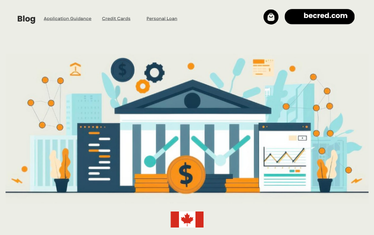Money Market Accounts Explained
When it comes to managing personal finances, checking and savings accounts are the most commonly known options. However, money market accounts also deserve attention, as they offer unique benefits by combining features of both types. This article explains what a money market account is, how it compares to other bank accounts, and why it may be a valuable addition to a comprehensive financial strategy.
What Is a Money Market Account?
Think of a money market account as the offspring of a checking account and a savings account. It combines elements from both to provide a hybrid solution. Like a savings account, it typically earns interest on your balance. However, it also allows limited transactions—up to six per month—similar to a checking account. You can write checks or use a debit card linked to this account, making it more flexible than a traditional savings account.
Money market accounts can be opened at almost any bank or credit union, whether they have a physical branch or operate entirely online. But the exact features and benefits you get will depend on the institution’s specific policies.
How Do Money Market Accounts Differ from Checking and Savings Accounts?
Interest Rates and Earnings
One of the main reasons people consider money market accounts is the interest rate. Traditionally, money market accounts have offered higher interest rates than regular savings accounts. This is because their rates are tied to the actual money markets—financial markets where short-term loans are made, reflecting current economic interest rates.
However, this isn’t always the case today. Some online banks, like Discover and Ally, have removed minimum balance requirements for money market accounts but have also lowered their interest rates to be on par with or slightly below their standard savings accounts.
Minimum Balance Requirements
Money market accounts first appeared in 1982 with a minimum balance requirement of $2,500. This was significant because not everyone had that much cash to keep in the bank, so savings accounts remained the go-to for those with smaller balances. Many traditional banks and credit unions still enforce minimum balances for money market accounts, often using tiered interest rates that increase with higher balances.
Transaction Limits and Accessibility
Unlike savings accounts, which typically don’t offer check-writing privileges, money market accounts allow up to six transactions per month through checks, debit cards, or electronic transfers. This makes them more liquid and accessible when you need your money, but still encourages saving by limiting frequent withdrawals.
Pros and Cons of Money Market Accounts
- Pros:
- Higher interest rates compared to many savings accounts (depending on the bank)
- Ability to write checks and use a debit card for limited transactions
- Good option for emergency funds due to liquidity and interest earnings
- Available at most banks and credit unions, including online institutions
- Cons:
- Minimum balance requirements can be high at some institutions
- Interest rates may be similar or lower than savings accounts at some online banks
- Limited to six transactions per month, which may restrict frequent access
- Not ideal for building substantial wealth as interest rates are relatively low overall
Who Should Consider a Money Market Account?
If you already have a checking account that meets your transactional needs, a traditional savings account might suffice for your emergency or short-term savings. But if you want a place to stash a fully funded emergency fund—say $10,000 to $15,000—a money market account can offer a nice balance between earning some interest and maintaining easy access to your funds.
The money market account encourages you to let your emergency fund “chill out” and grow a little, earning five to ten extra dollars per month in interest, while also reducing the temptation to dip into it for everyday expenses. When emergencies arise, funds can be accessed quickly through checks, debit cards, or transfers.
Best money market accounts today
When choosing a money market account, it’s important to compare interest rates, minimum balance requirements, and accessibility. Here are some of the top options currently available:
- Ally Bank Money Market Account
Offers competitive interest rates with no monthly maintenance fees and no minimum balance requirement. Comes with a free debit card and check-writing privileges. - Discover Money Market Account
Provides high interest rates for balances above $100,000 and solid customer service. Includes access to ATMs and check-writing capabilities. - Capital One 360 Money Market Account
No monthly fees and offers tiered interest rates. A good option for those who can maintain a higher balance to earn better yields. - Synchrony Bank Money Market Account
Known for offering some of the highest APYs among online banks. Includes ATM access through the Plus network. - TIAA Bank Yield Pledge Money Market Account
Offers a guaranteed competitive rate for the first year. Good for those who want a strong introductory APY and are comfortable banking online.
Before opening any account, always review the bank’s terms, conditions, and FDIC insurance coverage to ensure it aligns with your financial goals.
Money Market Accounts vs. Building Wealth
While money market accounts provide a safe place to hold cash and earn modest interest, they are not wealth-building vehicles. Real wealth comes from smart planning, eliminating debt, and investing in assets that appreciate over time, such as real estate and index funds.
In fact, most wealthy individuals don’t focus much on the interest rates their savings accounts pay—they concentrate on larger financial strategies. So, don’t get caught up in hopping between banks searching for the highest interest rate. Instead, choose a money market or savings account that fits your needs and focus your energy on more impactful financial goals.
Final Thoughts: Is a Money Market Account Right for You?
Money market accounts offer a unique blend of features that make them worth considering, especially if you want the flexibility of limited check-writing and debit card access combined with better interest rates than a standard savings account. However, the specifics vary greatly by institution, particularly regarding minimum balances and interest rates.
Before opening one, check your bank or credit union’s terms carefully. Compare the interest rates, fees, minimum balance requirements, and transaction limits to find the best fit.
Ultimately, a money market account can be a useful tool for managing your emergency fund or other short-term savings, but remember to keep your bigger financial goals in sight.


